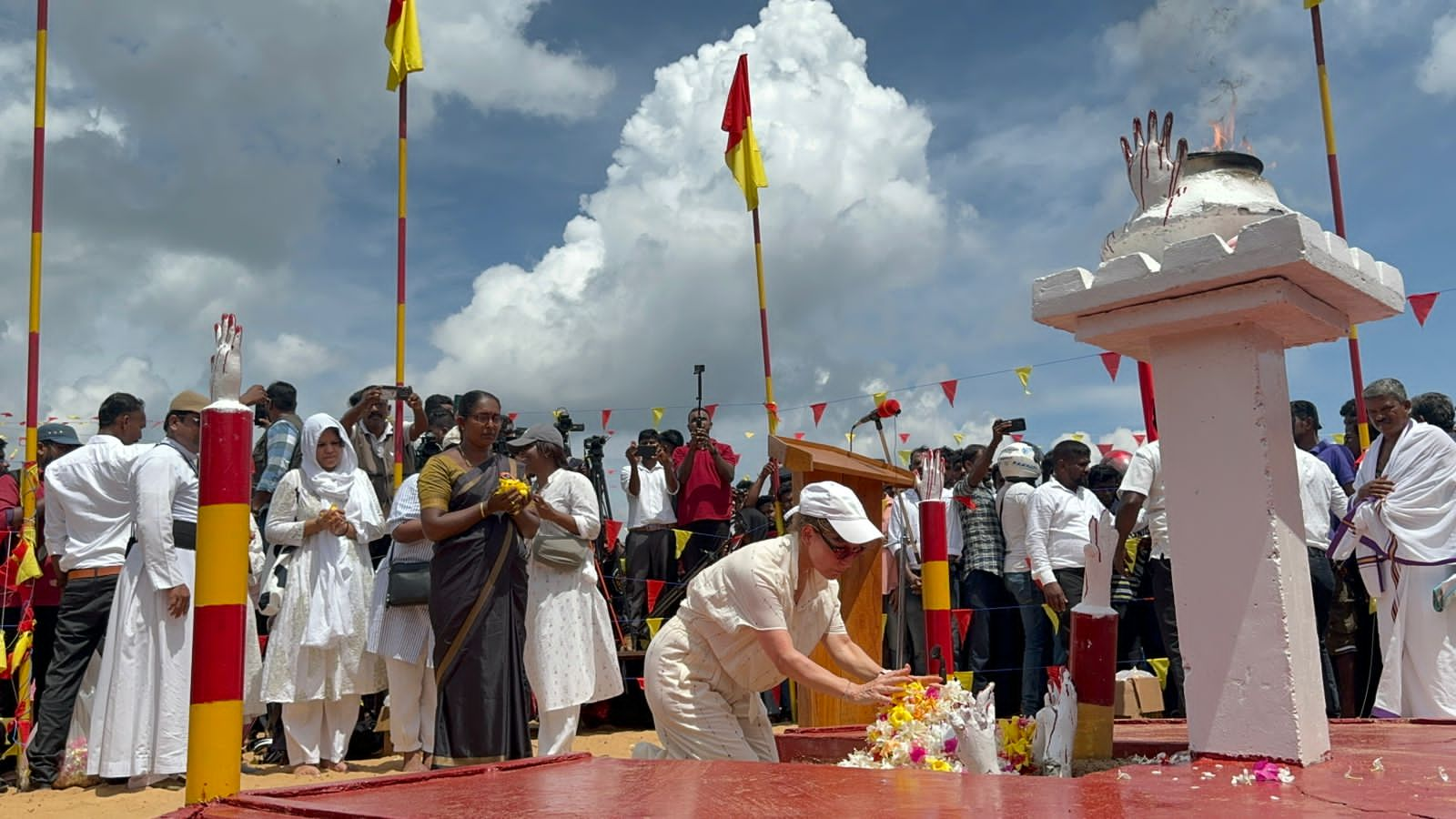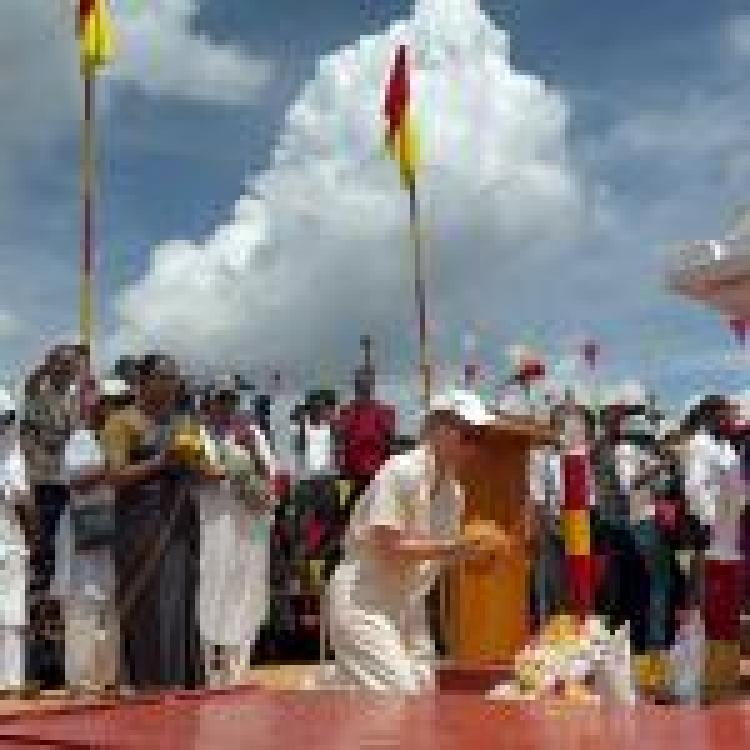
Upon the conclusion of Agnès Callamard, Amnesty International’s Secretary General, five day visit to Sri Lanka, the organisation issued a statement noting that "it is not just the successive governments [...but] all those in positions of leadership, from elected officials, opposition leaders, religious establishments and the media has failed in its fight against impunity".
The statement follows the 15th anniversary of the Mullivaikkal genocide that saw the end of the armed conflict and "left tens of thousands of people injured, dead, displaced, or forcibly disappeared". Amnesty International further noted, “a seeming lack of political will, along with complacency in delivering justice, prevents reconciliation, feeds grievances, and promotes instability. There should be no room for complacency".
Callamard urged the international community to work with Sri Lankan authorities to secure truth and justice for the victims of war as well as on-going human rights violations.
Vattuvagal bridge.
— Agnes Callamard (@AgnesCallamard) May 21, 2024
15 years ago, Thousands of Tamil men, women and children crossed over Vattuvagal bridge in the north-east of Sri Lanka from rebel-held land to government-controlled territory. Witnesses say the waters were teeming with dead bodies and blood.
It is… pic.twitter.com/fOkAwEHmKE
The Amnesty statement further noted that the upcoming elections would have a “major impact on the future of Sri Lanka and human rights” considerations for years to come. She urged the political leadership to implement trust-building measures that will address divisions, encourage inter-ethnic solidarity, and provide avenues for meaningful healing.
“It is imperative to address past wrongs; and make a conscious effort to create an enabling environment for redress while the government considers the establishment of a new Truth and Reconciliation Commission" Callamard said.
The Truth and Reconciliation Commission has been widely slammed by Tamil civil society as yet another hollow domestic mechanism aimed at diverting critism from Sri Lanka. Tamil National People’s Front (TNPF) leader Gajendrakumar Ponnambalam told the Tamil Guardian the CTUR is "a joke".
Callamard was in Mullivaikkal over the weekend to attend the commemorations at the memorial yard. Before the event, she also met families of the disappeared and spoke with them at length about their struggles in finding their loved ones.
“This visit has provided insights into the many challenges that Sri Lanka is confronting 15 years after the end of the war that has fractured and polarized Sri Lankan society. I am deeply grateful to all those who engaged with us, recounting their pain and grief, sharing their views and concerns, and voicing their hopes, fears, and demands for the present and the future. Amnesty International stands ready to support all genuine efforts and commitments to confront long-standing impunity, address the violations and grievances of the past and present, and put an end to discrimination and the repression of fundamental freedoms.”
She also emphasised that a slew of legislations such as the Online Safety Bill and proposed NGO laws “are worrying evidence of the dangers that are confronting Sri Lankans’s vibrant civil society.” She said that they were also concerned about the freedom of expression and assembly particularly when ICCPR Act is used to make arbitrary arrests. “These are often carried out under multiple accusations without formal charge or evidence and have led to lives being lived in limbo. This must end.”
Read the full Amnesty statement here.

